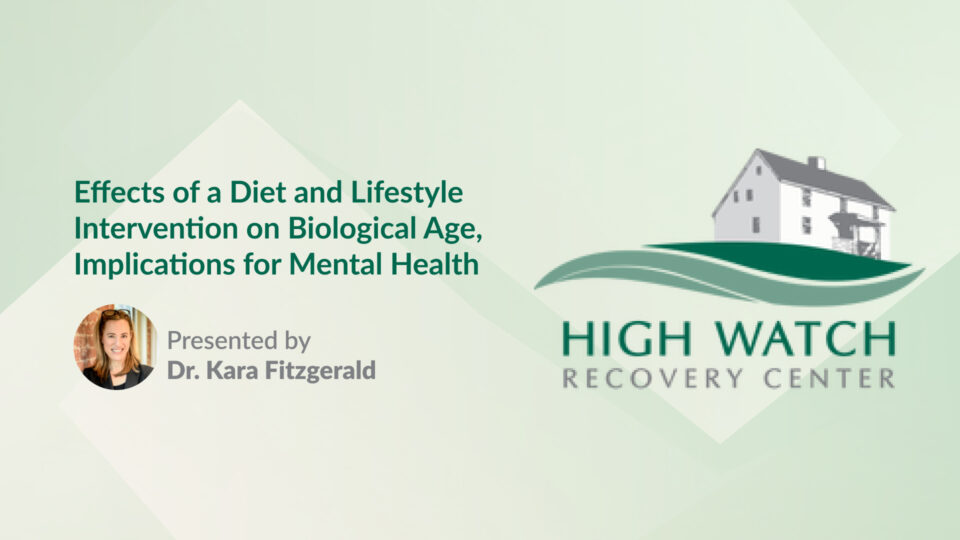Effects of a Diet and Lifestyle Intervention on Biological Age, Implications for Mental Health

Effects of a Diet and Lifestyle Intervention on Biological Age, Implications for Mental Health

Presented By
-
 Dr. Kara FitzgeraldMore Info
Dr. Kara FitzgeraldMore Info
Brought to You By
Recorded On
-
-
Location
-
On DemandSessions will be available On-Demand
The regulation of the human genome by the epigenome is now regarded as a cornerstone, heritable, physiologic process, playing a key role in the phenotypic expression of health and disease. DNA methylation is a well-researched, primary epigenetic process that has been used to establish biological age assessments, namely DNA methylation “clocks,” which act as possible surrogate markers of age-related morbidity and mortality risk. The potential to slow biological age as measured by these clocks is just beginning to be explored. Yet emerging research suggests that it is possible to do just that. This has profound implications for the growing health-related economic and social challenges of our rapidly aging population. A 2021 Nature Aging paper states that a slowdown in aging that results in one year of increased lifespan would save 38 trillion dollars in health care spending, and deceleration by ten years would save 367 trillion dollars. Additionally, “biological embedding” is the description of the mechanism by which stress, PTSD, trauma, depression, and possibly addiction can be translated into epigenetic marks that influence gene expression in the individual and may be heritable. The outcome of biological embedding may increase vulnerability to the chronic diseases of aging as well as depression and other mental health concerns, including addiction. While more research is needed into how to identify and address biological embedded patterns, the concept may help explain familial patterns and treatment-resistant presentations.
- • Social Worker
- • Psychologist
- • Counselor
- • Substance Use Disorder Professionals
Participants will learn an overview of epigenetics and how it may be impacted by diet and lifestyle.
At the end of this course, participants will be able to:
- Define epigenetics
- Summarize the basics of the current research landscape on DNA methylation and biological aging
- Identify 3 diet and lifestyle interventions that may favorably impact DNA methylation and biological aging
- List 3 potential impacts of diet and lifestyle on trauma and mental health
Trusted Provider Network, LLC is recognized by the New York State Education Department’s State Board for Social Work as an approved provider of continuing education for licensed social workers #SW-0654.
TPN.health, #1766, is approved to offer social work continuing education by the Association of Social Work Boards (ASWB) Approved Continuing Education (ACE) program. Organizations, not individual courses, are approved as ACE providers. State and provincial regulatory boards have the final authority to determine whether an individual course may be accepted for continuing education credit. TPN.health maintains responsibility for this course. ACE provider approval period: 03/31/2022 – 03/31/2025. Social workers completing this course receive 1.5 General continuing education credits.
Trusted Provider Network is approved by the American Psychological Association to sponsor continuing education for psychologists. Trusted Provider Network maintains responsibility for this program and its content.
Trusted Provider Network, LLC is recognized by the New York State Education Department’s State Board for Mental Health Practitioners as an approved provider of continuing education for licensed mental health counselors. #MHC-0220.
The Louisiana Counseling Association is approved by the Louisiana Licensed Professional Board of Examiners to offer continuing education clock hours. This presentation has been reviewed and has been approved for 1.5 CE clock hours for Louisiana Licensed Professional Counselors.
This course has been approved by TPN.health, as a NAADAC Approved Education Provider, for educational credits. NAADAC Provider #198061, TPN.health is responsible for all aspects of the programming.This course has been approved by TPN.health, as a NAADAC Approved Education Provider, for educational credits. NAADAC Provider #198061, TPN.health is responsible for all aspects of the programing. Counselor Skill Group: Ethical and Professional Development, Legal

